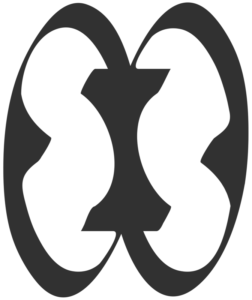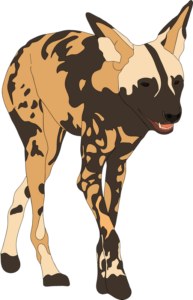
Family relationships have a direct impact on our well-being throughout our lives.
In fact, family sometimes becomes even more important to us as we age and our unique needs change.12
Families care for each other over the decades and during times of struggle or illness. Family members also serve as essential social ties when outside relationships, such as friendships and workplace relationships, become less important.1
Symbols of family are particularly useful in African culture when sharing beliefs, traditions, and family values3 as they represent the importance of kinship, unity, and the bonds shared within families.
Below, we list the most prominent African symbols for family, perfect for incorporating into your own family life.
You’ll also find interesting ways different cultures use these symbols today.
- Elephant
Symbolizes family due to their close family bonds4
- Nkonsonkonson
Depicted as a chain link; symbolizes unity, interconnectedness, strong family bonds, and the importance of working together
- Eban
Meaning “fence”; symbolizes the protection and sanctuary of home; emphasizes family values and the importance of unity, love, and harmony in the home; used in Adinkra textiles and jewelry to convey the significance of one’s family and their home5
- Duafe
Depicted as a comb; Adinkra symbol representing qualities associated with a good wife and mother; symbolizes the nurturing and caring nature of family members
- Abusua Pa
Adinkra symbol representing a good, unified family
- Wild dogs
Symbolize family and loyalty because they live in packs that work together - Oriki
A form of praise poetry used in Yoruba culture to acknowledge family lineage, heritage, and the contributions of ancestors; highlights the importance of family legacy
Uses for These Symbols in Daily Life
African symbols of family are an important part of preserving and passing down cultural heritage, nurturing a sense of identity, and reinforcing family ties.
They celebrate the bonds of kinship and all that is passed down through generations.
Some ways these symbols are used in daily life include:
- Family ceremonies: Family ceremonies, such as weddings, births, and funerals, present an ideal opportunity to use symbols of family. Families may include these symbols in decorations or rituals performed during the celebration.
- Gifts: Symbols can be incorporated into presents for family members, either in the gift’s packaging or the gift itself. This adds a personal touch and carries a stronger meaning of love and togetherness when presenting the gift.
- Arts and craftsmanship: Traditional and contemporary African arts and crafts often feature symbols of family. Sculptures, pottery, textiles, jewelry, and other forms of art may incorporate these symbols.
- Clothing and accessories: Some Africans wear symbols of family as jewelry, clothing adornments, or accessories. A family might even want to wear matching items. Wearing these symbols can provide a constant reminder of one’s connection to their family and culture, regardless of where they go or whether they’re physically together.
- Family crests: Some families use a specific symbol or a modified version as their family’s crest or emblem. These symbols serve as a visual representation of the family’s identity and history as they’re passed down through generations.





